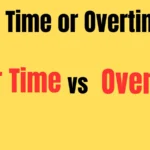English learners often find themselves puzzled by the subtle differences between similar phrases. One common area of confusion is the use of “Do you have or Have you got?”
Both phrases mean essentially the same thing, but their usage can vary based on formality, cultural context, and grammatical structure. In this blog post, we’ll dive deep into these nuances to help you master these common English queries.
Common English Queries
English is full of phrases that seem straightforward but can trip up learners due to their subtle differences. “Do you have?” and “Have you got?” are prime examples of this. Understanding when and how to use these phrases correctly is crucial for clear and effective communication.
Prevalence
Both “Do you have?” and “Have you got?” are prevalent in everyday English. They are used in various contexts, from casual conversations to formal inquiries. This prevalence makes it essential to understand their proper usage to avoid misunderstandings.
Core Differences Between “Do You Have?” and “Have You Got?”
Definition and Explanation
“Do you have?” is a straightforward question asking if someone possesses something. For example, “Do you have a pen?”
“Have you got?” serves the same purpose but is structured differently. For instance, “Have you got a pen?” Both questions seek the same information but may be preferred in different contexts.
Historical Context
“Do you have?” is rooted in American English, while “Have you got?” is more commonly used in British English.
This historical development reflects the broader linguistic evolution in the two regions.
Structural Differences
Grammatical Structure:
- “Do you have?” uses the auxiliary verb “do” followed by the base form of the verb “have.”
- “Have you got?” uses “have” as the auxiliary verb followed by “got,” which serves as a past participle.
Formality in Choosing the Right Phrase
Formal vs Informal Contexts
Choosing between “Do you have?” and “Have you got?” often depends on the level of formality.
- Formal Contexts: “Do you have?” is generally more appropriate in formal settings.
- Informal Contexts: “Have you got?” is often used in casual conversations.
Professional Settings
In professional or formal settings, using “Do you have?” is usually preferred. For example:
- Meeting: “Do you have the latest sales report?”
- Email: “Do you have any feedback on the project proposal?”
Casual Conversations
In casual conversations, “Have you got?” might sound more natural and relaxed. For example:
- With Friends: “Have you got any plans for the weekend?”
- At Home: “Have you got the remote?”
Cultural Variations: American vs British English Preferences
Regional Differences
American and British English speakers often prefer different phrases, which can lead to regional variations in usage.
- American English: Prefers “Do you have?” for most inquiries.
- British English: Often uses “Have you got?” in everyday conversations.
Examples and Anecdotes
Consider these examples:
- American English: “Do you have a moment to talk?”
- British English: “Have you got a moment to chat?”
These preferences can sometimes lead to confusion or the need for clarification when Americans and Brits communicate.
Impact on Communication
Understanding these cultural variations helps avoid misunderstandings and fosters smoother communication.
Knowing when to switch phrases based on your audience can enhance clarity and connection.
Grammatical Perspectives: Auxiliary Verbs and Their Uses
Explanation of Auxiliary Verbs
Auxiliary verbs, also known as helping verbs, are used with main verbs to create different tenses, moods, and voices.
In our case, “do” and “have” serve as auxiliary verbs.
Usage in Phrases
“Do you have?” employs “do” as the auxiliary verb:
- Present Simple: “Do you have a pen?”
- Negative Form: “Do you not have a pen?”
“Have you got?” uses “have” as the auxiliary verb:
- Present Perfect: “Have you got a pen?”
- Negative Form: “Have you not got a pen?”
Examples
- Positive: “Do you have any questions?” vs. “Have you got any questions?”
- Negative: “Don’t you have any questions?” vs. “Haven’t you got any questions?”
Contextual Usage: When to Use “Do You Have?”
Appropriate Situations
“Do you have?” is versatile and can be used in various contexts, especially where clarity and formality are required.
- Checking Possession: “Do you have a car?”
- Asking for Help: “Do you have a minute?”
Formal and Informal Examples
- Formal: “Do you have the agenda for the meeting?”
- Informal: “Do you have time to grab coffee?”
Common Mistakes
Common mistakes include overusing “Do you have?” in informal settings where “Have you got?” might sound more natural.
“Have You Got?” – Informality and Spoken English
Informal Contexts
“Have you got?” is predominantly used in informal contexts and spoken English. It conveys a sense of familiarity and casualness.
- Friends and Family: “Have you got any snacks?”
- Everyday Conversations: “Have you got a minute?”
Examples
- In Conversations: “Have you got any idea what time it is?”
- At Home: “Have you got the keys?”
Common Pitfalls
Avoid using “Have you got?” in highly formal or professional contexts, as it may sound too casual.
Frequency of Use in Everyday Conversations
Statistical Insights
According to linguistic studies, “Do you have?” is more frequently used in American English, while “Have you got?” is prevalent in British English.
This regional preference influences everyday communication patterns.
Regional Variations
- United States: “Do you have?” is used approximately 70% of the time in queries.
- United Kingdom: “Have you got?” is used around 60% of the time in informal conversations.
Nuances in Phrasing: Adding Emphasis and Clarity
Emphasis
Each phrase can add emphasis in different ways.
- “Do you have?” emphasizes the possession aspect.
- “Have you got?” can emphasize the immediacy or current state.
Clarity in Communication
Choosing the right phrase can enhance clarity. For example:
- “Do you have the report?” (Checking possession)
- “Have you got the report?” (Expecting the report to be ready or present)
Examples
- “Do you have the keys?” (Do you possess the keys?)
- “Have you got the keys?” (Are the keys with you right now?)
Common Errors to Avoid With “Have You Got?”
Typical Mistakes
- Overuse in Formal Contexts: Using “Have you got?” in formal writing or professional settings.
- Confusing Tenses: Mixing up “have” as an auxiliary verb with other tenses.
Correction Tips
- Formal Writing: Opt for “Do you have?” in formal contexts.
- Practice Exercises: Practice switching between the phrases in different contexts to get a feel for their usage.
Practice Exercises
- Correct the Sentences:
- “Have you got the report ready for the meeting?”
- “Do you have any plans for tonight?”
- Choose the Right Phrase:
- In a business email: “___ you ___ the latest data?”
- Talking to a friend: “___ you ___ any spare change?”
Exploring Examples: Clarifying “Do You Have?” in Sentences
Detailed Examples
- Do you have a pen? (Asking about possession)
- Do you have a minute? (Asking for someone’s time)
- Do you have any suggestions? (Asking for ideas)
Explanation
Each example clarifies the specific context in which “Do you have?” is used, emphasizing possession or availability.
“Have You Got?” in Practice: Sample Sentences and Situations
Practical Examples
- Have you got any money? (Checking if someone has money)
- Have you got the tickets? (Ensuring someone has the tickets)
- Have you got time for a quick chat? (Asking if someone is available)
Explanation
These examples illustrate the use of “Have you got?” in checking for immediate possession or availability, typical in spoken English.
Conclusion: Mastering the Subtleties of English Queries
Summary of Key Points
- “Do you have?” is more formal and common in American English.
- “Have you got?” is informal and prevalent in British English.
- Context, formality, and regional preferences play crucial roles in choosing the right phrase.
Final Thoughts
Mastering these subtleties can significantly improve your English communication skills.
Practice using both phrases in different contexts to become more confident and versatile in your language use.
Call to Action
Start incorporating these phrases into your daily conversations and writing. Pay attention to context and formality to ensure you’re using the most appropriate phrase.
Share your experiences and any questions in the comments below!

Amelia Harris, a passionate educator, simplifies English grammar and vocabulary for learners of all levels. With her engaging style, mastering English has never been easie




